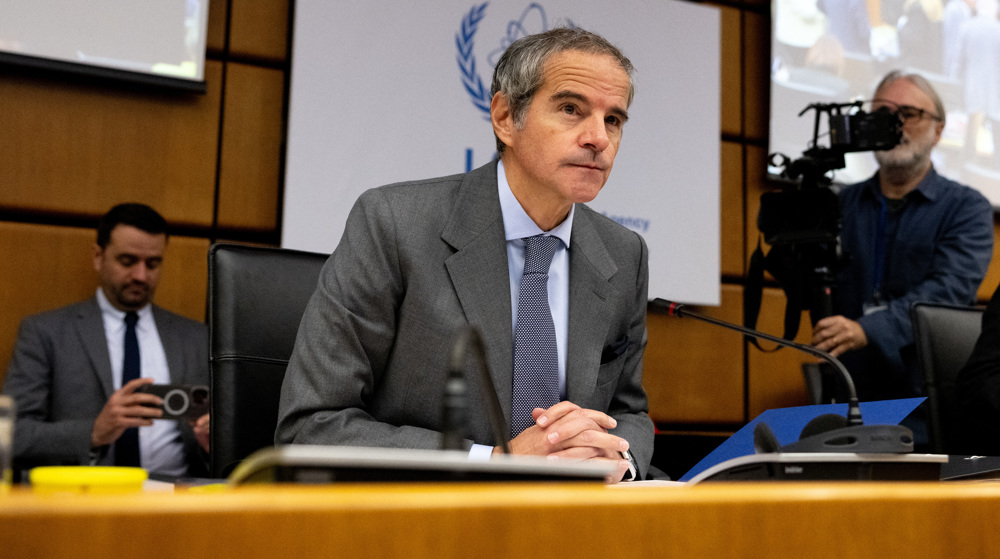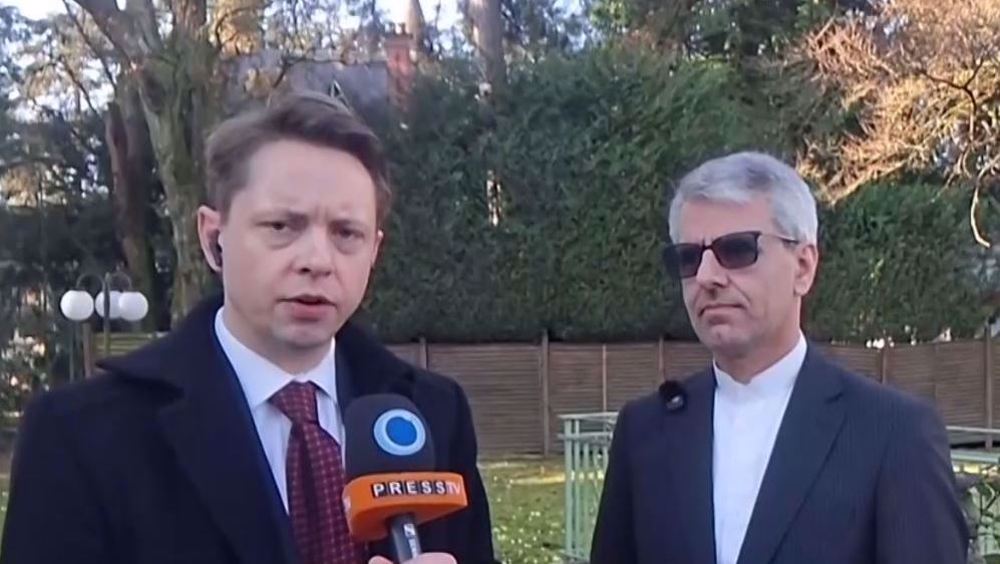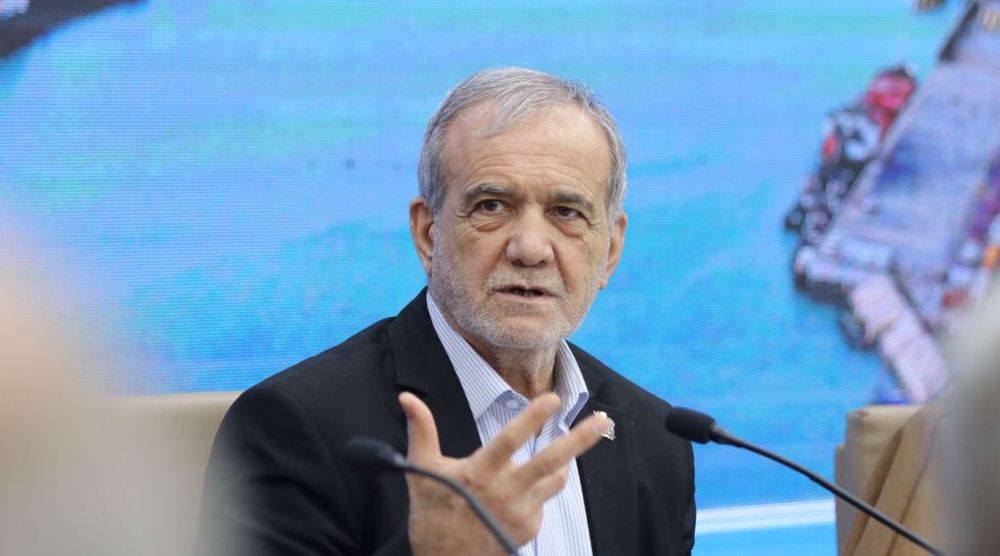P5+1 draft resolution to close PMD issue: Iran envoy to IAEA
The draft resolution that the P5+1 group of countries has delivered to the International Atomic Energy Agency (IAEA)'s governing board will bring an end to past and present outstanding issues regarding Iran’s nuclear program, Iran’s IAEA ambassador says.
Reza Najafi made the comments while speaking to reporters in Vienna on Tuesday a day after the P5+1 finalized a draft resolution on Iran’s past nuclear activities with the IAEA Board of Governors prepares to vote on it in mid-December.
He said the P5+1 states presented the resolution with the purpose of closing the dossier of the so-called possible military dimensions (PMD) of Tehran’s nuclear program in accordance with a nuclear agreement, dubbed the Joint Comprehensive Plan of Action (JCPOA), reached between Iran and the P5+1 in July.
Iran and the P5+1 group of countries – the United States, Britain, France, Russia, China and Germany – managed to finalize the text of the JCPOA in the Austrian capital, Vienna, on July 14.
Under the JCPOA, limits are put on Iran’s nuclear activities in exchange for, among other things, the removal of all nuclear-related economic and financial bans against the Islamic Republic.
“In line with the [process of] the closure of the past and present outstanding issues or the so-called PMD, the Board of Governors will terminate all 12 previous resolutions of the Board of Governors, including two PMD resolutions, i.e. November 2011 and September 2012 [resolutions], on the JCPOA Implementation Day,” Najafi said.
The draft resolution is expected to be approved by the IAEA Board of Governors on December 15 “without any change” in the text, the Iranian envoy added.
The IAEA’s Board of Governors is set to hold a meeting on December 15 to make a final decision on Iran’s nuclear case. Tehran says it will implement a nuclear agreement signed with the P5+1 in July once the file is completely closed.

In its latest report on December 2, the UN nuclear monitoring body said it has found no indications of the diversion of nuclear material for non-civilian objectives in Iran's nuclear program.
The report also alleged that activities related to the development of a nuclear explosive device in Iran's nuclear program "did not advance beyond feasibility and scientific studies, and the acquisition of certain relevant technical competences and capabilities."
The draft resolution said Iran and the IAEA have implemented all the activities stipulated in a roadmap signed by the two sides on July 14 for the clarification of past and present outstanding issues regarding Iran's nuclear program and noted that this will close the Board of Governors’ consideration of the PMD file.
On July 14, a roadmap for “the clarification of past and present outstanding issues” regarding Iran’s nuclear program was signed by IAEA chief Yukiya Amano and Head of the Atomic Energy Organization of Iran Ali Akbar Salehi in the Austrian capital.
The draft resolution welcomed the conclusion of the JCPOA, which was endorsed by the United Nations Security Council’s resolution 2231 on July 20, and the roadmap between Iran and the IAEA.
It confirmed that all relevant participants have undertaken steps to fulfill their respective commitments under the JCPOA and recognized the long-term nature of the provisions of the agreement and their implications for the IAEA.
It also welcomed Iran's reaffirmation in the JCPOA that it will, under no circumstances, develop or acquire nuclear weapons, and the Islamic Republic’s commitment to not engage in activities which could contribute to the development of a nuclear explosive device.
Iran has repeatedly denied any attempt to develop nuclear weapons, saying it is banned based on Islamic teachings.
‘Law of jungle’: China says Israeli-US aggression against Iran must stop
Iran says committed to regional security; retaliatory attacks only target Israel, US assets
'Blatant war crime': Iran denounces US-Israel strikes on Gandhi hospital in Tehran
IRGC spox: 650 casualties for US military in two days as Iran missiles force aircraft carrier to fle
Tehran warns of false-flag operations, says Israel ‘undoubtedly’ seeking to widen war
New wave of attacks devastates key US base in Bahrain as Iran strikes back
Melania Trump chairs UN children's meeting as Iran buries kids killed in US-Israeli attack
Why Iran’s Leader refused special protection, leading from the front until last breath










 This makes it easy to access the Press TV website
This makes it easy to access the Press TV website